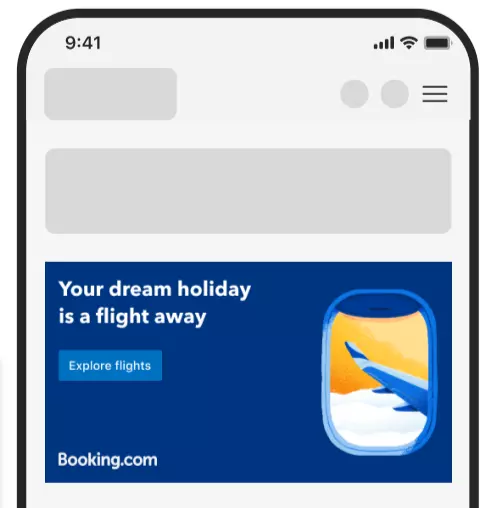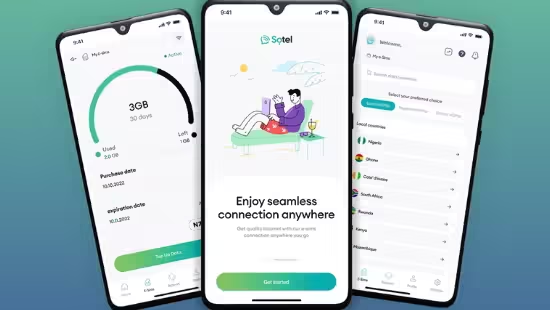
Skyscanner Dominates the UK Travel Booking Industry
In today’s rapidly evolving online travel market, competition is fierce, but Skyscanner has surged ahead as the UK’s leading online travel booking platform. A new report by Salience Search Marketing reveals fascinating insights into the top-performing travel brands, based on their prominence and visibility in the digital space. With Skyscanner taking the crown, we’re diving deep into the data and analyzing what makes it the go-to platform for travelers. So, what sets Skyscanner apart, and how do other industry giants like Booking.com and EasyJet fare in this competitive landscape? Skyscanner UK travel booking leader
Let’s unpack the key findings, brand performances, and how the travel sector is shifting toward more consumer-centric strategies.
The Skyscanner Success Story
What Makes Skyscanner Number One?
Skyscanner is synonymous with convenience. With over four million monthly brand searches and an impressive social media presence, it’s clear why the platform is leading the charge. Travelers trust Skyscanner to provide quick, user-friendly access to flight deals, hotel bookings, and car rentals. But beyond the numbers, Skyscanner can adapt to user demands—such as affordability and ease of use—that keeps it ahead of the pack.
Key Metrics Behind Skyscanner’s Prominence
Salience Search Marketing’s report analyzed several performance indicators that determine brand success. These include:
- Monthly brand searches: Skyscanner raked in over 4 million.
- Owned social score: A whopping 19,952—far ahead of many competitors.
- Year-on-year visibility: Consistent growth in brand searches and engagement online.
These metrics show that Skyscanner’s combination of marketing prowess and user-centric design has solidified its top spot.
How Other Brands Compare in the Travel Sector
While Skyscanner leads the pack, other travel giants are making waves, each with unique strategies and consumer bases. Let’s explore how they compare:
Hotels.com: A Strong Contender in the Accommodation Space
Hotels.com attracted over 5 million monthly brand searches, indicating a huge demand for its services. Its loyal customer base is drawn to the simplicity of the booking, a wide range of accommodations, and rewarding loyalty programs. However, despite its high search volume, the brand’s social media presence lags behind Skyscanner, with an owned social score of just 7,872.
Booking.com: Global Reach Meets Local Demand
With a monthly brand search volume of 673,000 and an owned social score of 35,515, Booking.com is a force to be reckoned with in the global travel scene. Its intuitive interface, a wide selection of accommodation options, and international reach make it a favorite for travelers. However, its visibility in the UK market doesn’t match the likes of Skyscanner or Hotels.com, despite its strong social presence.
EasyJet: Affordable Flights for the Masses
For affordable air travel, EasyJet remains a key player. Boasting over 2 million monthly brand searches and a social score of 4,955, EasyJet’s appeal lies in its budget-friendly options. In today’s economy, where affordability is a top priority, brands like EasyJet and Skyscanner have become go-to platforms for savvy travelers.
The Power of Social Media in Travel Bookings
How Social Media Influences Travel Choices
Today’s travelers don’t just rely on search engines; they also turn to social media for travel inspiration and booking platforms. Social engagement plays a significant role in shaping consumer behavior, and brands that leverage social channels effectively can see a massive uptick in their visibility. Skyscanner’s impressive owned social score of 19,952 demonstrates the importance of strong social media performance, while others like Booking.com and Emirates are not far behind.
Social Media: Skyscanner’s Key to Dominance
Skyscanner’s high engagement across social media channels reinforces its brand prominence. The platform understands how to speak to travelers, offering deals, tips, and user-generated content that encourage interaction and, ultimately, bookings. It’s this connection with the audience that makes Skyscanner a standout in a crowded market.
The Importance of Consumer-Centric Strategies
Meeting Consumer Demands: Affordability and Flexibility
In the travel industry, the landscape is continuously shifting to meet consumer demands. Today’s travelers are more budget-conscious than ever before. Skyscanner’s rise to the top reflects the broader market trend: affordability is king. As Brett Janes, managing director of Salience Search Marketing, pointed out,
“Consumers are tailoring their travel search to affordability,” and brands that don’t adapt risk losing their share of the market.
Adaptability: Why It’s Critical for Brands
Brands that adjust to changing consumer behavior thrive in the travel industry. This adaptability is evident in Skyscanner’s strategies—whether it’s highlighting affordable travel options or making the platform more user-friendly. Companies that fail to meet these evolving needs may find themselves falling behind.
The Role of Search Volume in Brand Visibility
Why Search Volume Matters
Search volume is a critical indicator of brand health. It reflects how many people are actively seeking out a particular platform. For Skyscanner, its 4 million-plus monthly brand searches underline its market dominance. In contrast, brands like TUI, which offers comprehensive holiday packages, recorded just 1.8 million monthly searches. Skyscanner UK travel booking leader
TUI: A Niche Player in the Holiday Space
TUI’s relatively lower search volume (1.8 million monthly searches) shows that it caters to a more specialized market, with holiday packages tailored to specific traveler needs. Its social score of 13,238 indicates a strong presence but still lags behind leaders like Skyscanner and Booking.com.
Global Brands vs. UK-Centric Platforms
Skyscanner’s International Appeal
While the report focuses on the UK market, Skyscanner’s global reach cannot be overlooked. The platform’s ability to cater to both local and international travelers gives it a significant edge over more UK-centric brands. Its simple interface and global partnerships make it accessible to users around the world.
Booking.com and Emirates: Global Players with UK Presence
Booking.com’s 673,000 monthly searches and Emirates’ 368,000 show that these brands are popular in the UK but their true strength lies in their global reach. Their high social scores reflect a strong international following, making them formidable competitors on a worldwide scale.
The Future of the UK Travel Booking Market
What’s Next for Skyscanner?
Skyscanner’s dominance in the UK market shows no signs of slowing down. With a keen understanding of consumer needs and a commitment to maintaining its digital presence, Skyscanner is well-positioned to remain the leader in the travel booking space.
Opportunities for Other Brands
Other brands like Hotels.com and Booking.com can learn from Skyscanner’s strategies. By focusing on user experience and increasing social engagement, these brands could gain more prominence in the UK market.
Conclusion: Skyscanner’s Winning Formula
The travel industry is constantly evolving, but Skyscanner’s rise to the top is no fluke. By prioritizing affordability, ease of use, and a strong social media presence, Skyscanner has become the go-to platform for UK travelers. As competition in the sector intensifies, it’s clear that only brands that adapt to consumer needs will survive and thrive. Skyscanner UK travel booking leader










